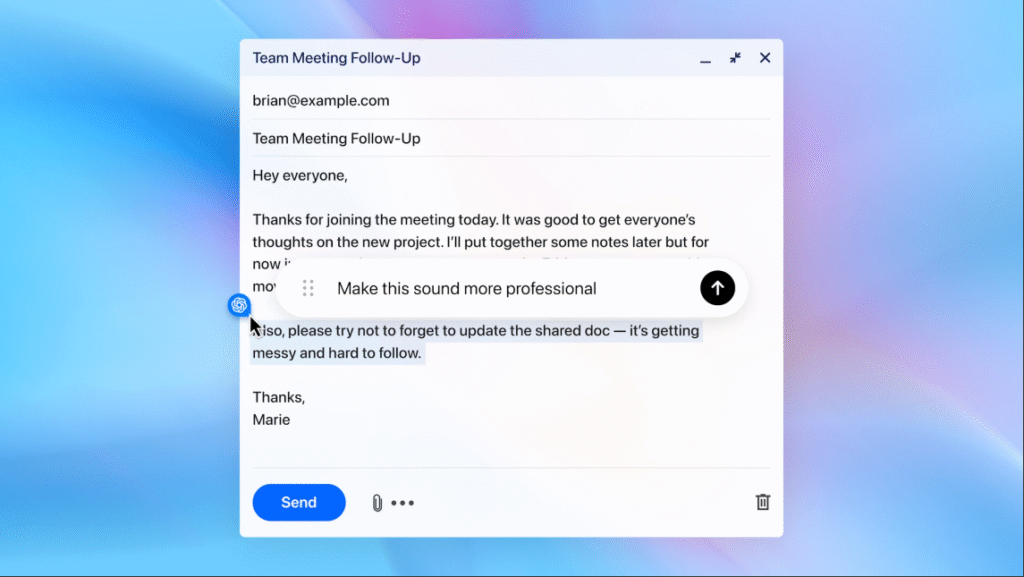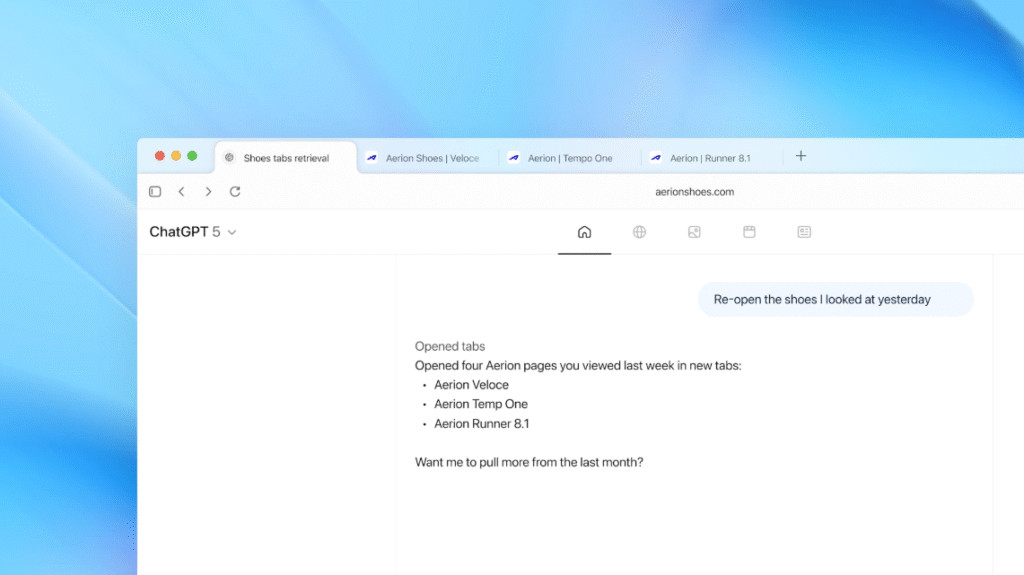Key Takeaways
- OpenAI launches ChatGPT Atlas browser, integrating its AI assistant directly into web navigation and combining chat and search in a single interface.
- New “agent mode” allows ChatGPT to perform tasks within the browser, such as opening pages, conducting research, or organizing information, with safeguards preventing code execution or access to local files.
- Optional “browser memories” enable personalized assistance, letting ChatGPT recall website context while giving users full control over data visibility and deletion.
- Future updates and platform expansion planned, including versions for Windows, iOS, and Android, as part of OpenAI’s broader move toward “agentic systems.”
Table of Contents
OpenAI on Tuesday launched ChatGPT Atlas, a new web browser that integrates its artificial intelligence assistant directly into users’ browsing experience, deepening the company’s push to embed generative AI into everyday digital tools.
According to the official announcement, the browser, available initially for macOS, lets users access ChatGPT as they navigate websites, helping with research, summarizing information, and automating online tasks without switching tabs.
The browser introduces a unified chat-and-search interface on its new tab page, where users can ask questions or enter URLs in a single bar and view responses or related results, including links, images, videos, and news.

Atlas Adds Agent Mode to Automate Research, Forms, and Online Tasks
Atlas introduces an “agent mode” that lets ChatGPT take actions such as opening pages, gathering information, or completing forms on behalf of users. This feature is in preview for ChatGPT Plus, Pro, and Business subscribers.
OpenAI said agent mode includes safeguards that prevent the system from running code, downloading files, installing extensions, or accessing other applications and local files on a user’s device.
The company also stated that the feature has been tested against risks such as malicious instructions hidden in web pages or emails, adding that the agent pauses on sensitive sites like banks and can be used in a logged-out mode to limit exposure to personal data.
“Browser Memories” Bring Tailored Experiences to ChatGPT
Atlas features a “browser memories” function that allows ChatGPT to recall context from visited websites to provide personalized assistance. OpenAI said the feature is optional and can be managed or deleted at any time through settings, with browsing history removal also clearing related data.
Furthermore, the company said browsing content is not used to train its models unless users explicitly opt in through data controls. However, even with opt-in enabled, websites that block GPT Bot will remain excluded.
As an additional layer of user protection, Atlas builds on ChatGPT’s parental controls, allowing parents to manage or disable agent mode and browser memories, with the ability to turn off both features entirely.

Atlas to Gain More Features, Platforms, and Developer Integration
According to the company’s roadmap, future updates will add multi-profile support, new developer tools, and features to enhance app and website integration, including options to boost app visibility and help website owners optimize how ChatGPT interacts with their pages.
OpenAI said versions of Atlas for Windows, iOS, and Android are in development, describing the launch as another step toward “agentic systems,” software capable of performing web-based tasks on behalf of users.
Read More: Cancer Breakthrough: Google’s 27B-Parameter AI Uncovers New Therapeutic Pathway







